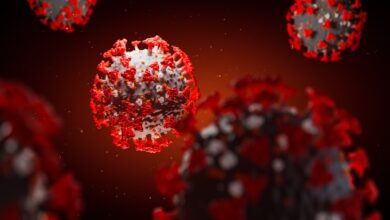Getting enough sleep can benefit everything from your mood to your immune system, but more than a third of Americans struggle to get the recommended seven (or more!) hours per night. To start catching up on those lost ZZZ’s, try tweaking your diet. Getting more minerals like potassium, magnesium, calcium, and iron on your plate can help kickstart the production of melatonin, the hormone responsible for sleep regulation. Research shows that some specific foods — like cherries, nuts, and oats — specifically contain sleep-promoting properties and get you off to dreamland sooner.
When it’s getting close to bedtime, make sure you’re steering clear of heavy fried foods, alcohol, caffeine (like coffee, tea, and energy drinks), and heartburn-inducers such as tomato sauce or orange juice. These can have the exact opposite effect and keep you tossing and turning for longer. Stick to the late-night bites listed below, and peaceful slumber will be yours.
2
Watermelon
Since dehydration can impact your ability to fall and stay asleep (not to mention your energy levels overall!), choosing watery fruits like watermelon can make up for any deficits. A 2-cup serving is half (you guessed it) water, which will hydrate you before bed and eliminate post-dinner hunger pains due to the fiber and volume. London also recommends thirst-quenching cantaloupe, apples, oranges, and pears.
4
Pistachios
Pistachios hit the sleep-inducing jackpot, packing in protein, vitamin B6, and magnesium, all of which contribute to better sleep. Refrain from a shell-cracking frenzy, though. “Don’t exceed a 1-ounce portion of nuts,” London warns. “Anything too high in calories can have the reverse effect of keeping you awake!”
5
Prunes
The nutrients in dried plums — vitamin B6, calcium, and magnesium, to name a few — help make melatonin, the hormone that regulates sleep. Use prunes as a whole-grain toast topping, mix them into trail mix, or eat them on their own about 30 minutes before bedtime.
6
String Cheese
Still can’t silence those stomach grumbles? Your kids’ snack stash might come in handy. Part-skim mozzarella cheese (a.k.a. string cheese) provides a satisfying protein, especially if you pair it with whole-grain crackers.
7
Herbal Teas
No surprise here, but herbal tea has tons of snooze-promoting properties. “Chamomile tea is excellent for calming nerves before bedtime,” says London. “It’s also hydrating and stomach-soothing, same as ginger tea.”
8
Oatmeal
It may be a favorite for breakfast, but you might want to try eating a bowl of oatmeal after dark for help sleeping through the night. “Grains in oatmeal trigger insulin production much like whole-grain bread,” says Cynthia Pasquella, CCN, CHLC, CWC. “They raise your blood sugar naturally and make you feel sleepy. Oats are also rich in melatonin, which relaxes the body and helps you fall asleep.”
9
Almonds
Just a handful of these and you’ll be dozing off in no time. Pasquella says almonds contain tryptophan and magnesium, which both help to naturally reduce muscle and nerve function while also steadying your heart rhythm.
Almond butter or peanut butter will also work. Spread it on graham crackers, a banana, or that sweet potato toast. Again, keep your dollop under a tablespoon so you’re not feeling too stuffed before heading to bed.
10
Cherries
The best way to get a good night’s sleep is to increase your melatonin intake, recommends Michelle Dudash, RD. Cherries, along with nuts and oats, are a natural source of melatonin. When eaten regularly, they can help regulate your sleep cycle.
11
Dark Chocolate
Don’t worry — you can eat chocolate day and night (whew!). Dark chocolate contains serotonin, which relaxes your body and mind. Not to mention the other health benefits dark chocolate has too.
12
Bananas
The magnesium and potassium in bananas serve as muscle and nerve relaxants. Dudash says that the vitamin B6 found in the fruit also converts tryptophan into serotonin, increasing relaxation even more.
13
Hummus
This chickpea spread is another great source of tryptophan, says Pasquella. “If you’re waking up hungry in the middle of the night, that usually means you’re not getting enough calories during the day,” she says. Eat hummus during the day for better sleep and aim for three small meals overall, plus two snacks if needed.”
Caroline Picard
Health Editor
Caroline is the Health Editor at GoodHousekeeping.com covering nutrition, fitness, wellness, and other lifestyle news.
This content is created and maintained by a third party, and imported onto this page to help users provide their email addresses. You may be able to find more information about this and similar content at piano.io







